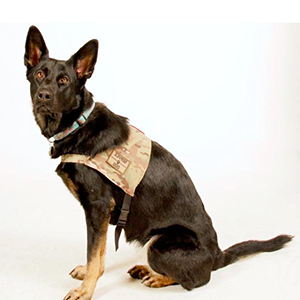Background
Prior to this study there was a rise in popularity of psychiatric service dogs for veterans with chronic post-traumatic stress disorder (PTSD). Since no scientific evidence linked to the effectiveness of psychiatric service dogs, veteran support organizations were reluctant to fund this costly investment of time and money. Additionally, clinicians, such as psychiatrists, were hesitant to recommend psychiatric service dogs because no guidelines existed.
Objective
We have measured the effects of the acquisition of an assistance dog on psychiatric symptoms, sleep, mobility, psychosocial impact and quality of life, compared to the 6 months preceding the acquisition of the dog. Six of the 8 hypotheses were confirmed.
Results
There were 31 veterans registered for a service dog at 7 dog training schools in Canada and the United States. Eventually, 23 veterans acquired a psychiatric service dog, and of these, 18 completed all follow-ups (of 18 months). Analyzes have shown that the arrival of the psychiatric service dog correlates with 1) a decrease in nightmares, 2) an improvement in sleep, 3) a significant decrease in symptoms of PTSD, 4) a decrease in depressive symptoms, 5) an improvement in getting around in the community and 6) an improvement in the quality of life. No change was observed 7) in medication use and 8) in the level of burden felt by caregivers.
The attached simplified report was sent to participating veterans: it shows the purpose of the project, the target population recruited, the measurement tools used and the most important results.
Funding: The Canadian Institute for Military and Veteran Health Research and the Department of Veterans Affairs

